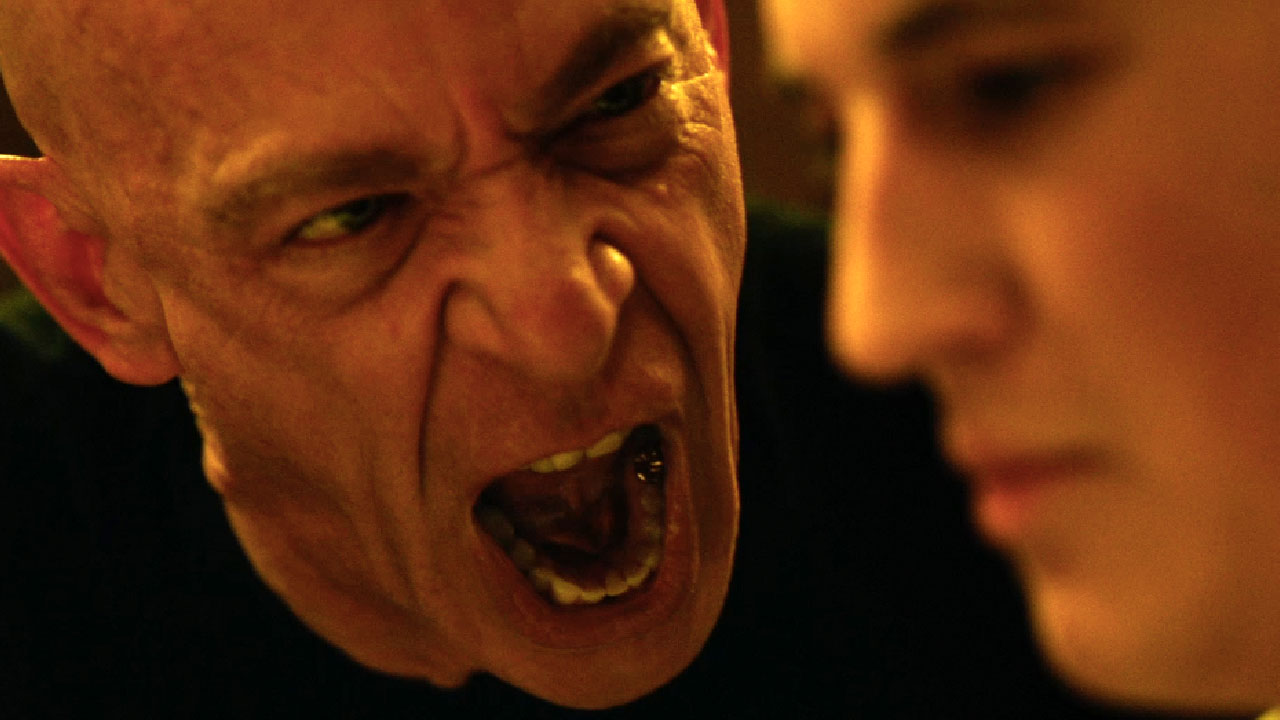In the 2014 film Whiplash we meet a young man by the name of Andrew Neiman a freshman at the Schaffer Conservatory of Music in New York City. When we first meet him he is in a setting that will soon become all too familiar, a practice room sitting behind a drum set. We don’t get to spend much time alone with our main character at first as his practice session is interrupted by Terrence Fletcher, played by J.K Simmons in a performance that won him the Oscar for Best Supporting Actor.
Fletcher comes in and immediately begins to put Neiman through the ringer (though this is nothing compared to what comes later) as he has him (Neiman) play his rudiments. A first time watcher of this film may not think much about that scene but as someone who has watched this movie numerous times (full disclosure, it’s my favorite film) I’m fascinated by this scene. We see two people; literally the master and the student at different points in their journey. Before I go much further into this let me say that this is part one of a two part piece.
Each piece is going to be dedicated to a specific character. For this first part, let us discuss Fletcher.
After watching this movie several times, I began to realize the importance of the very first scene or at least I began to realize what all can be observed in that scene.
We see that Fletcher is the type of person who knows exactly what he is looking for. He knows what he wants in a musician. He wants passion, dexterity, talent, but most of all he wants possibility. Now any music professor worth their salt wants this in their pupils. However, with Fletcher its different.
Throughout the movie he talks about musicians such as Buddy Rich and Charlie “Yardbird” Parker. At about halfway through the 3rd act we see the recently expelled Neiman and the recently fired Fletcher meet up at a Jazz night and begin talking. Fletcher tells the story of Parker and how he became one of the greats. Fletcher then goes on to talk about how he always wanted a Parker of his own, someone who he can live vicariously through and how it’s worth pushing musicians to their breaking point because a true Charlie Parker wouldn’t give up. Now this is just my personal belief but I think that this scene tells a lot or at least gives us clues into Fletcher’s past. We can deduce that at some point Fletcher himself was a pretty damn good musician who, like Neiman, was obsessed with becoming one of the greats but he could never quite get to that level. So he decided to take a job teaching in order to find a great, or at least someone who could become one. After all, “He who can, does; he who cannot, teaches”- George Bernard Shaw. Fletcher wants to become great at any cost and in any way possible. If he can’t be a great musician, then he can at least be known as the professor who taught one of the greats. This is his obsession, his white whale. Which brings us back to the beginning scene in the practice room. We see Fletcher, a man who has been doing this for years at the beginning of this cycle.
He has found a musician who he believes has potential and who he will push to his limit. They say “some men achieve greatness while other have greatness thrust upon them.” Fletcher has found his musician and dammit, he will do what it takes to make sure this new student will be great.
Before I wrap this up I would be remiss if I didn’t give one crucial piece of evidence for this obsession of Fletcher’s and how dangerous it is.
During a particularly emotional scene Fletcher tells us the story of Sean Casey, a trumpet player who was once a student of his. According to Fletcher, years earlier Casey was a relatively new student at the conservatory who barely squeaked into the program and was being told by other professors that he might want to consider doing something else. After going through the same type of Hell that Neiman is currently being subjected to, Casey became the 1st Trumpet at Lincoln Center, an honor that would definitely put him on track to becoming one of the greats. However, later on at the beginning of act three we find out that Casey committed suicide as a result of the depression and anxiety that were brought on by Fletcher’s methods. Fletcher was so close to having his own Charlie Parker, only to have it ripped out from under him as a result of his own methods. This sets the stage for one of the greatest scenes of the entire movie and brings us to the end of part one of this series. Keep checking in for part two in which I discuss Neiman’s own pursuit of greatness. Thanks for reading!








